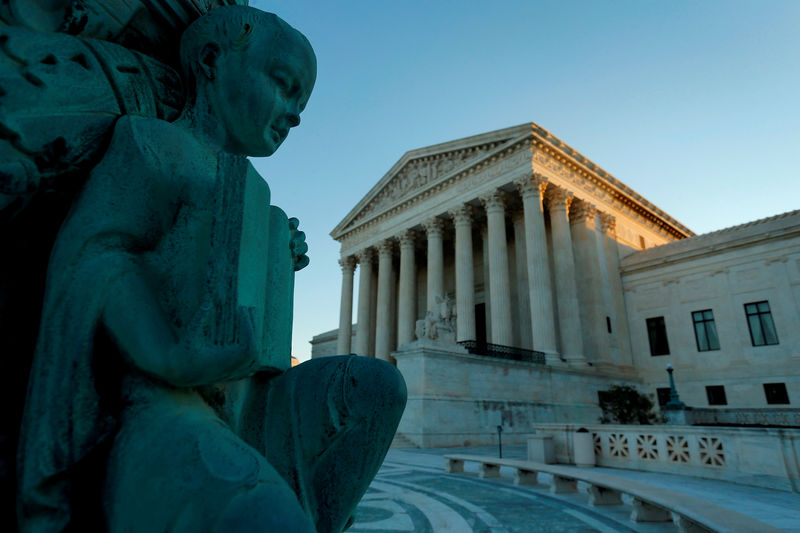Investing.com’s stocks of the week
By Lawrence Hurley
WASHINGTON (Reuters) - The U.S. Supreme Court on Monday faulted North Carolina again in a racially tinged voting rights case, upholding a lower court's ruling that Republican lawmakers mapped state legislative districts in a way that diluted the clout of black voters.
But the justices also threw out another ruling by the same panel of three federal judges ordering special elections by November to fill the state legislature seats at issue in the dispute.
The high court, with no recorded dissents, sent the case back to the lower court to reconsider whether special elections are necessary. The Supreme Court in January put the matter of special elections on hold while it decided whether to hear the state's appeal of the ruling.
The justices upheld an August 2016 ruling by the three-judge panel that the districts were racial "gerrymanders," with boundaries drawn to diminish the voting power of minorities, and violated the U.S. Constitution's guarantee of equal protection under the law. The lower court found that the Republican-led state legislature had crammed black voters into a limited number of districts in order to lessen their statewide electoral power.
At issue were nine state Senate districts and 19 state House districts, as carved out in a plan adopted by the legislature in 2011.
The Supreme Court has dealt with North Carolina voting rights cases three times in the past three weeks.
On May 22, it ruled that North Carolina Republicans unlawfully took race into consideration when drawing two majority-black U.S. House of Representatives districts, concentrating black voters in an improper bid to diminish their statewide influence.
On May 15, the justices rebuffed a Republican bid to revive a strict North Carolina voter-identification law that a lower court found deliberately discriminated against black voters.
On Monday, the justices, in an opinion with no recorded dissents throwing out the decision requiring special elections, said the lower court gave only a "cursory" analysis of whether such elections were "a proper remedy for a racial gerrymander" when it ordered them last November.
'INTRUDING ON STATE SOVEREIGNTY'
They added that said "obvious considerations include the severity and nature of the particular constitutional violation, the extent of the likely disruption to the ordinary processes of governance if early elections are imposed, and the need to act with proper judicial restraint when intruding on state sovereignty."
Packing minorities into a limited number of legislative districts would reduce their influence in electing a larger number of lawmakers, increasing the sway of white voters.
"Whether the election is November 2018 or earlier, redrawing the districts is good for our democracy by leveling the playing field for free and fair elections," North Carolina Governor Roy Cooper, a Democrat, said in a statement.
"The people should be able to choose their representatives in competitive districts instead of the representatives being able to choose the people in lopsided, partisan districts," Cooper added.
Republican lawmakers praised the high court's action to throw out the order requiring special elections.
"We are encouraged the Supreme Court unanimously rejected the lower court's politically motivated attempt to force a special legislative election in 2017 and its efforts to 'suspend provisions of the North Carolina Constitution,' ignore voters' constitutional right to elect representatives to two-year terms, and effectively nullify their votes from 2016," state Senator Ralph Hise and Representative David Lewis said in a statement.
Democrats have accused Republicans of taking a variety of steps at the state level to disenfranchise black and other minority voters who tend to back Democratic candidates. Republicans have defended their actions, saying some are meant to prevent voter fraud.
